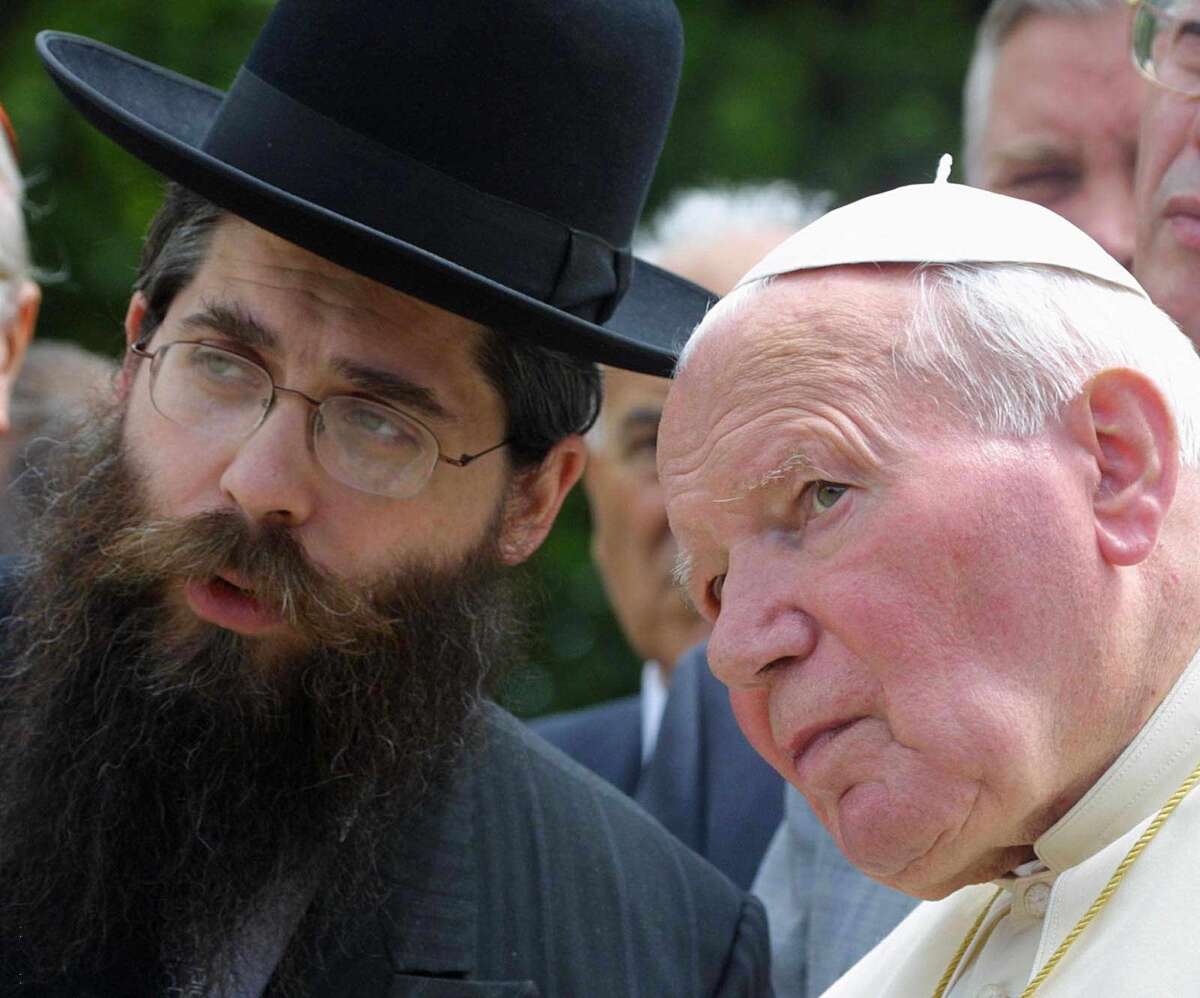John XXIII and John Paul II: Righteous popes

- Share via
As millions of Roman Catholics rejoice in the news that two popes are being fast-tracked to sainthood, many Jews are smiling with them. Pope Francis has approved John XXIII and John Paul II for the church’s supreme honor in a process that quick-stepped protocol. Jews, on the other hand, will remember both of these men for taking steps that were a millennium in the making.
Over the centuries, Catholic Church-inspired anti-Semitism spawned the demonizing and murder of countless Jews. Across Europe and wherever the church’s teachings reached, the faithful were taught that Jews had no place among decent human beings, that the Jewish people’s covenant with the Almighty was rendered null and void by Christianity, and that Jews were cursed to eternal tribulation for having crucified Jesus.
Because Europeans had been taught these tropes for generations, Adolph Hitler (no religious devotee himself) and the Nazis could be confident of the support they would receive across the continent when they unleashed their Final Solution of the “Jewish question” — the genocide of a people.
SLIDE SHOW: Pope Francis’ small steps to lift liberals’ hearts
It took two decades after the liberation of Auschwitz, but in 1965, the Catholic Church did an about-face regarding anti-Jewish teachings with the release of Nostra Aetate, or In Our Age, a 1965 declaration of the Second Vatican Council. Pope John XXIII, who launched Vatican II, shepherded it along, although Nostra Aetate wasn’t released until after his death. No one will ever know how many Jewish lives around the world he made secure, and how many friendships between Catholics and Jews he empowered.
It could have been predicted. As Father Angelo Joseph Roncalli, the papal representative in Istanbul during World War II, he provided bogus papers to help Jewish refugees flee the Nazis and escape to Palestine. He personally prodded the Catholic queen of Bulgaria to persuade her husband to protect the Jews of that nation. Roncalli is credited with saving the lives of tens of thousands of Jews.
Perhaps because of what he saw during the Holocaust, John XXIII never lost an opportunity to modify church practices that nurtured anti-Semitism. He removed the term “perfidious” Jews from the Good Friday prayer. The pontiff decried theological anti-Semitism: “Across the centuries, our brother Abel was slain in blood which we drew....” he once prayed. “Forgive us, Lord, for the curse we falsely attributed to their name as Jews.”
John warmly received countless Jewish delegations. During one such audience, he introduced himself with a Biblical verse that alluded to his baptismal name and underscored the relationship between Christians and Jews: “I am Joseph your brother.”
If John XXIII took hugely important steps in changing attitudes and teachings about Jews, John Paul II boldly walked those steps into the public arena. He literally went where no pope had gone before.
As a young man in Poland under Hitler, Karol Wojtyla was witness to hell on Earth. He personally rescued a starving 13-year-old Jewish girl at a rail station, feeding and caring for her.
During the Middle Ages, Jews in Rome’s Great Synagogue were forced to listen to harangues against their faith delivered by apostate Jews. John Paul II delivered a different message when he attended that synagogue, the first pope to visit a Jewish house of worship, embracing Rome’s Chief Rabbi Elio Toaff and calling Jews the “elder brothers” of Christians.
He continued walking on new ground. He visited Jerusalem and the Western Wall, praying there for forgiveness for the way Christians had mistreated Jews for almost 2,000 years. He walked in pilgrimage to the blood-drenched killing grounds of Auschwitz-Birkenau. He organized a papal concert in memory of the 6 million Jews murdered in the Holocaust. He established full diplomatic relations with Israel, accepting a revivified Jewish nation.
Jews do not pray to saints; we don’t have any. We do look up to the righteous and saintly. Jews will join with their Catholic friends in praying that people of all faiths will find inspiration in these two great men. We will pray that their example will move others to lead lives of godliness, lives in which the image of the Deity that is in all people is properly cherished. From their place on high, their souls will be praying with us.
During John Paul II’s final illness, the leaders of the Simon Wiesenthal Center requested an audience with him. The Vatican responded that they had already met with the pope on an earlier occasion. “Yes,” Rabbi Marvin Hier responded, “but this time we only want to say thank you.” We got the audience, and blessed the ailing pontiff. We have no doubt that the Jewish people will continue to offer thanks for John Paul II and John XXIII.
Rabbi Abraham Cooper is the associate dean of the Simon Wiesenthal Center. Rabbi Yitzchok Adlerstein is the center’s director for interfaith affairs.
More to Read
A cure for the common opinion
Get thought-provoking perspectives with our weekly newsletter.
You may occasionally receive promotional content from the Los Angeles Times.






